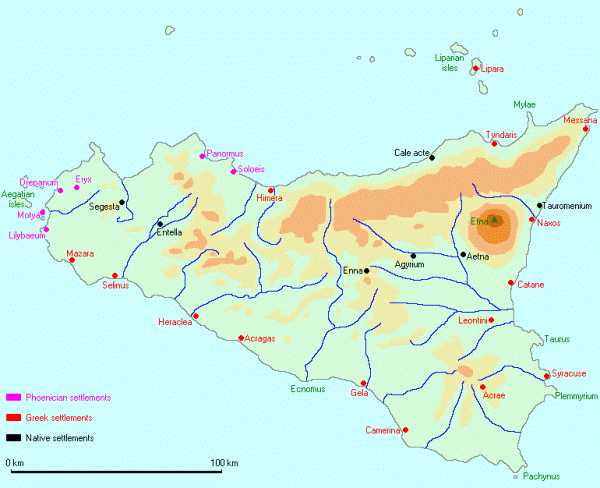Apoikia
Apoikia is the Greek word used to describe the Greek ‘colonies’ that were established during the 8th, 7th and 6th centuries B.C.E. The English translation of colony, and the notion of colonisation are not entirely satisfactory, as they have a set of modern connotations that are not applicable to ancient Greece. The word apoikia was one of two that the Greeks used to describe their ‘colonies’, and it was used to describe settlements that were a “home away from home” (Whitley, p. 124). The apoikiai retained connections with the mother city, where the majority of the population and the founder would have originated from. In theory, apoikiai could even call on the mother city in times of need. This is markedly different from the emporion. This word described the other type of Greek colony, which was closer to a trading outpost than an independent political community, and emporia did not always have mother cities.
There was variety in the Greek process of ‘colonisation’, and this may have reflected the varying motivations for emigration and the establishment of apoikia. Rapid population growth, political unrest in the mother city, desire for increased trade, and a search for greater agricultural opportunities are several factors that could have motivated the establishment of apoikiai. In most cases it would be a combination of factors, and there would have been different motivations for different locations. The Greek colonisation took place on Magna Graecia (modern day Italy) and Sicily during the 8th-6th centuries. One of the first apoikai to be established was Pithekoussai, founded in the early 8th century on the island of Ischia, off the modern-day Gulf of Naples. Of the apoikiai established on Sicily, the early ones began on the East coast, and later settlements began to be established further West. Many of the later apoikia were in fact founded by colonists from earlier apoikia. Sicily provided a dynamic location for Greek settlements due to its position as something of a cultural crossroads, with contact between the Near East, Greece, and North Africa where Carthage was located.
Some notable Sicilian apoikiai are Megara Hyblaia, which in turn founded Selinute, Agrigento (Akragas), and Syracuse.
 Map of Sicily showing Greek and Phonecian colonies as well as native settlements
Map of Sicily showing Greek and Phonecian colonies as well as native settlements
Bibliography
James Whitley, ' The Archaeology of Ancient Greece ’, 2001
